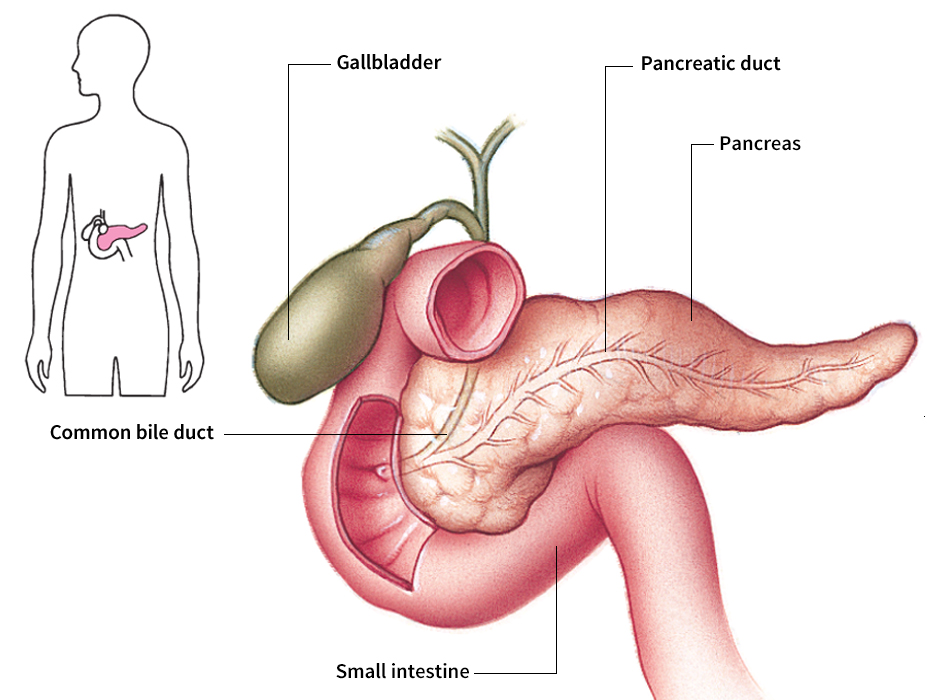Pancreatic cancer is a serious disease in which abnormal cells grow out of control in the pancreas << PAN kree uhs >> . The pancreas is an organ on the left side of the abdomen near the small intestines . It makes digestive enzymes that help break down food. The pancreas also makes hormones needed to regulate the body’s sugar balance and metabolism . In pancreatic cancer , abnormal cells multiply wildly. They destroy healthy tissue and endanger a person’s life.

Pancreatic cancer occurs most often in the part of the pancreas that produces digestive juices. In about 5 percent of cases, pancreatic cancers occur in the hormone-producing portion of the organ. This article discusses the more common form of the disease.
Pancreatic cancer is more common among men, people who smoke cigarettes, and people with the disease diabetes . People who are obese also have an increased risk of developing this cancer. Obesity is the condition of having excessive body fat. People who have had chronic inflammation of the pancreas also have an increased risk. Pancreatic cancer may also run in families.
Symptoms of pancreatic cancer may include abdominal pain; weight loss; jaundice (yellowing of the skin); itching; brown-colored urine ; light-colored feces; nausea ; vomiting ; loss of appetite; and back pain. Other warning signs include a sudden onset of diabetes or abnormal blood sugar levels. Pancreatic cancer is difficult to treat and often fatal because common symptoms may go unnoticed until the cancer is advanced.
If doctors suspect pancreatic cancer, they may test for it by measuring levels of certain substances in the blood that originate in the pancreas. Imaging tests may be used to identify tumors . Such tests may include X-ray examinations, computed tomography (CT) scans, or magnetic resonance imaging (MRI) . Doctors may also take a biopsy (sample of tissue) from the pancreas to confirm the diagnosis. Treatment usually includes surgically removing all or part of the pancreas and any cancer that has spread to nearby tissue. Chemotherapy (drug therapy) and radiation treatments are used to kill any remaining cancer cells and relieve symptoms.
Pancreatic cancer is a serious illness, and the death rate from the disease is high. Even when the cancer appears to be completely removed, it often returns, either in the pancreas or elsewhere in the body. Less than a quarter of patients with pancreatic cancer survive one year past diagnosis. Cancers that originate in the hormone-producing portion of the pancreas have a higher rate of successful treatment.
